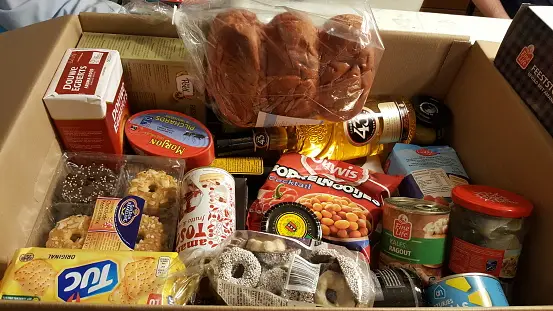Prepper Food Storage 101: Essential Tips and Tricks for Stocking Up for Any Emergency
In uncertain times, being prepared for any emergency situation is crucial. One of the most important aspects of emergency preparedness is having an adequate food supply to sustain yourself and your loved ones. That's where prepper food storage comes into play. Whether it's a natural disaster, a pandemic, or any other unforeseen event, having a well-stocked pantry can make all the difference. In this blog post, we will discuss some essential tips and tricks for stocking up for any emergency.

Assess Your Needs
Before diving headfirst into prepper food storage, it's important to assess your needs. Consider how many people you need to feed and for how long. Are there any dietary restrictions or allergies to consider? Understanding your specific requirements will help you make informed decisions when it comes to purchasing and storing food.
Build a Balanced Stockpile
When it comes to prepper food storage, variety and balance are key. Aim to build a stockpile that includes a mix of non-perishable foods from different food groups. Canned goods, dried fruits and vegetables, grains, legumes, and protein sources like canned meat or fish are all great options. Don't forget to include essential condiments, spices, and cooking oils to enhance the flavor of your meals.
Consider Nutritional Value and Shelf Life
When selecting foods for your prepper pantry, it's essential to consider both nutritional value and shelf life. Opt for foods that provide a good balance of macronutrients and essential vitamins and minerals. Additionally, pay attention to the expiration dates and shelf life of the products you choose. Rotate your stock periodically to ensure you are always consuming the oldest items first and replacing them with fresh ones.
Proper Storage Techniques
Storing your prepper food correctly is crucial to maintain its freshness and quality. Keep your stockpile in a cool, dry, and dark place to prevent spoilage and extend shelf life. Avoid storing food in areas prone to temperature fluctuations, such as garages or attics. Invest in sturdy, airtight containers or food-grade buckets to protect your supplies from pests, moisture, and oxygen.
Create a System for Organization
Maintaining an organized prepper food storage system is essential for easy access and inventory management. Consider labeling your containers with the contents and expiration dates to keep track of what needs to be consumed first. Arrange your stockpile in a way that allows you to quickly locate specific items when needed.
Regularly Rotate and Consume
Prepper food storage is not a set-it-and-forget-it endeavor. It's crucial to regularly rotate and consume the food in your stockpile to ensure its freshness and prevent waste. Create a system that encourages you to use and replace items on a regular basis. Incorporate your stored food into your everyday meals to minimize the risk of food going to waste.
Stay Informed and Updated
Lastly, staying informed and updated on the latest emergency preparedness recommendations and guidelines is crucial. Keep an eye on news alerts, weather forecasts, and government advisories to stay ahead of any potential emergencies. Make adjustments to your prepper food storage plan as needed to ensure you are adequately prepared for any situation.
In conclusion, prepper food storage is an essential aspect of emergency preparedness. By assessing your needs, building a balanced stockpile, considering nutritional value and shelf life, practicing proper storage techniques, creating an organization system, regularly rotating and consuming food, and staying informed, you can ensure that you and your loved ones are ready for any emergency that may come your way.







